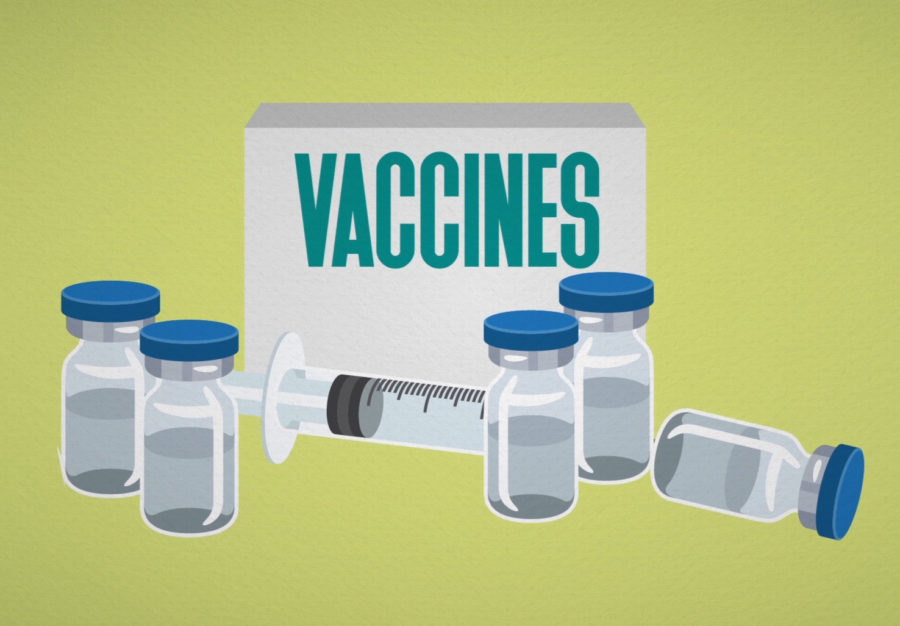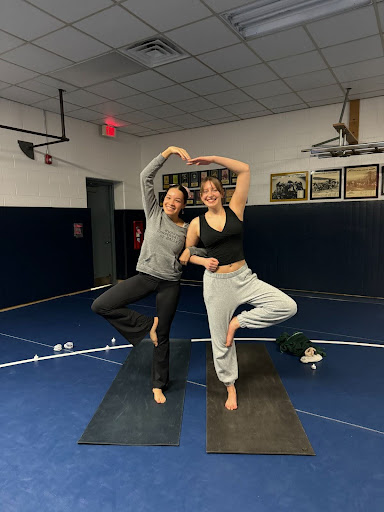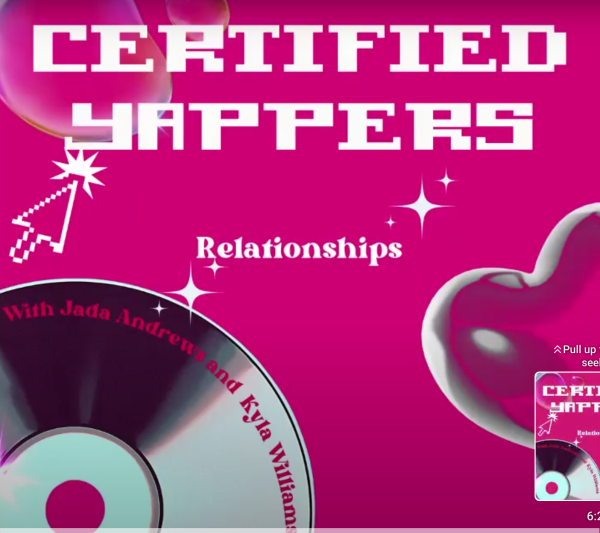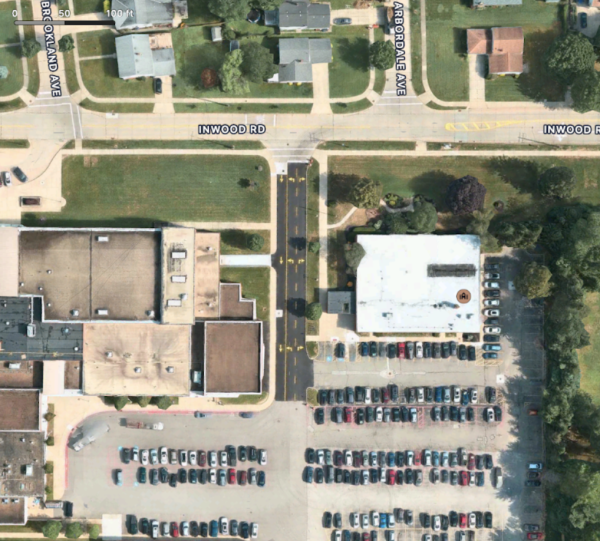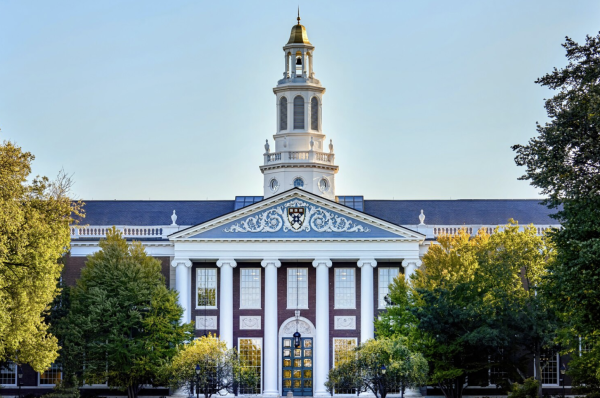Team Vaccines
Photo courtesy of https://www.agingresearch.org/press-release/new-campaign-offers-ae%CB%9Cwellness-wisdom-about-vaccines-for-medicare-open-enrollment/.
April 29, 2019
Vaccinations have been a part of our lives since the first vaccine, smallpox, in 1796. There are over 30 vaccines active in America right now. With the number of vaccines available and the history we read about peoples’ lives without vaccines, like the swelling of brains from measles or paralyzation from polio, it’s hard to understand why someone would not vaccinate themselves or their family members. Although almost every flag points you toward getting vaccinations, there are many people around the world who don’t believe vaccinations should be used, specifically in the US.
Vaccinations are a necessity for us as human beings. The reason they are necessary is the simple reason of life. Most people in the world want to live as long as they can and when they do pass on, I’m sure no one wants to meet their doom with something like Polio. Regardless, there are certain people in the world who are putting people lives in danger because of the idea of “naturally” attaining and getting rid of a disease (cough cough which may I add has not proven in the slightest).
A survey was distributed through Solon High School (SHS) to see the opinions of other students regarding vaccinations. Over 100 people across all grade levels were surveyed throughout the school. One of the most important questions asked was “Do you think it is important for people of all ages to get vaccinated to protect against diseases?” Out of 108 students, 96.3 percent (104 students) answered yes, and 3.7 percent (four students) chose no. The results of these questions proved that many people (like me) agree that vaccinations are very important.
Vaccinations prevent against so many diseases that it’s difficult to see the other side of the argument. If there was even the slightest chance that I could prevent myself and family from getting a disease, I would do everything I could to make my future last for as long as possible. A student who took the survey expresses this after being asked why or why not after the question of essential vaccines or no vaccines.
“We live in a society where diseases plague us and can make our lives miserable,” an anonymous surveyor answered. “At any point in time if vaccinations can serve as prevention from minor or major ailments we have a greater chance at preventing epidemics and unnecessary suffering (or even death).”
Vaccinations not only protect the person who receives the vaccination but also the people around them. There are many people who sadly, cannot get vaccines. For example, it is very difficult for a current cancer patient or even a cancer patient in remission to get vaccines because chemotherapy and radiation weakens a person’s immune system. With a weak immune system, a vaccination could put their lives at risk so they rely on people around them to be vaccinated. If an unvaccinated person comes in contact with someone with such a weak immune system it could put their lives in extreme danger.
Herd immunity is the idea that I spoke about in the above paragraph and it is the resistance to the spread of a contagious disease within a population that results if a sufficiently high proportion of individuals are immune to the disease, especially through vaccination. In simpler terms, if a high amount of people have a vaccination, there is an extremely low expectancy rate of someone unable to get vaccines to contract a vicious disease. If enough people refuse to get vaccines, herd immunity will go away and not only people who can’t get vaccines will be in serious danger but also people who are able to get vaccines. Once herd immunity disappears people without vaccines will be in even more danger because they won’t even have pro-vax people to protect them in a way.
SHS Anatomy teacher, Kristen Ahrens, echoes most of my feelings and opinions when asked about vaccinations.
“The science behind it in that I am not only protecting my kids and I’m protecting others that cannot be vaccinated because of medical reasons…..so protecting against little babies who can’t get vaccinated because they are too young,” Ahrens said.
In the survey, there was a question about the vaccinations of newborns. “At birth, newborns are given the Vitamin K shot (prevents potentially fatal hemorrhaging in infants because they are low in vitamin k at birth) and an initial Hepatitis B vaccine (a series shots given up to 6 months that protects against Hepatitis B). Do you agree with the idea that newborns should receive shots at birth?” was the question asked to survey takers. 97.2 percent (105 students) of people answered yes.
When prompted to answer why and why not most people defended their answer with the idea that it is protecting babies from the harm of the present and the future.
“It seems like the best way to prevent babies from these diseases now and in the future. This, in turn, helps prevent the spread of said diseases as well,” an anonymous surveyor answered.
It is obvious that a lot of SHS students agree with vaccines, but there are always two sides to each story. Some students do not agree with vaccines, because of the slight risks that could come with vaccines as well as other reasons.
“I think that a lot of these illnesses are very rare, and some may even only be for economic gain for doctors and that you can not actually be sure if these vaccines are really solving the problem,” an anonymous survey taker said.
Well.. first of all… these illnesses are rare because of surprise, vaccines. Without these shots these diseases would still be killing, that is, if we would still be living in the first place. We can be completely sure that the vaccines are the reason these “problems” (extreme death toll isn’t just a “problem” but okay) are being eradicated. Many anti-vaxxers say that vaccines aren’t the reason diseases have been abolished but by “better hygiene”. Yes, hygiene has improved over the years, but anti-vaxxers haven’t stopped to notice that even the cleanest of people can contract the chicken pox, or the measles or anything else vaccines protect against.
A lot of anti-vaxxers have followed in the footsteps of celebrities who make it known that they are anti-vaxxers. One celebrity, most know as an anti-vaxxer is Jenny McCarthy. McCarthy is the most known celebrity who has made it known why she is an anti-vaxxer. The reason being her child got a vaccination and started to develop the first signs of autism. McCarthy became a spokesperson for anti-vaxxers.
I know an opinion is an just that, an opinion. All adults in my life have told me that no one’s opinion is wrong, but Jenny McCarthy is wrong. Period. There has been so much research conducted that proves there is not ONE thing that connects autism to vaccinations. One study done was the Centers for Disease Control and Prevention (CDC) study done in 2013. The study looked into the ingredients and antigens and proved that none of them were linked to causing autism.
Overall, vaccines have made the world a safer place to live in but the people around the world who think that vaccines do ridiculous things like, give you autism, or cause you harm or overall have more cons than pros are making the world gradually less safe for new generations to come.

